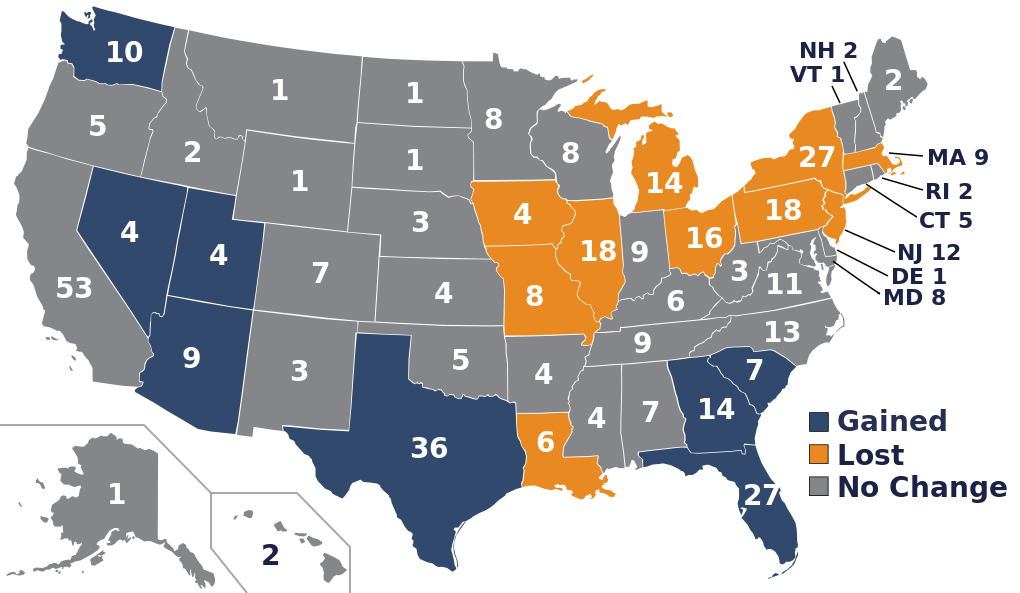United States House of Representatives Brief introduction
From https://en.wikipedia.org/wiki/United_States_House_of_Representatives
The United States House of Representatives is the lower chamber of the United States Congress, the Senate being the upper chamber. Together they comprise the legislature of the United States.
Some information about House of Representatives.
- The total number of voting representatives is fixed by law at 435..
- seats in the United States House of Representatives are distributed among the 50 states according to the most recent constitutionally mandated decennial census.
- Since its inception in 1789, all Representatives have been directly elected.

- Powers
- The House is charged with the passage of federal legislation, known as bills, which, after concurrence by the Senate, are sent to the President for consideration.
- the House has certain exclusive powers which include the power to initiate all bills related to revenue, the impeachment of federal officers, who are sent to trial before the Senate, and in cases wherein no candidate receives a majority of electors for President, the duty falls upon the House to elect one of the top three recipients of electors for that office, with one vote given to each state for that purpose.
- Elections
- held in every even-numbered year, on Election Day the first Tuesday after the first Monday in November
- After a census is taken (in a year ending in 0), the year ending in 2 is the first year in which elections for U.S. House districts are based on that census
- serve for two-year terms
Written on July 1, 2018
